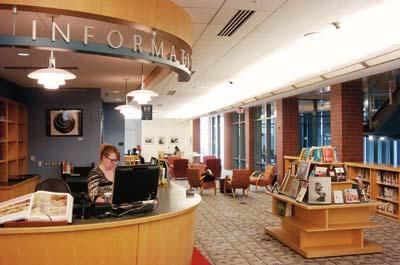By Philip Sean Curran, Staff Writer
The Princeton Public Library will spend parts of three months examining the Vietnam War through a series of lectures wrapped around the showing of all 18 hours of the Ken Burns and Lynn Novick documentary about the war.
The program begins Sunday at 2 p.m. with a talk by former Rutgers University professor and historian Lloyd Gardner, who has taught and written about the conflict. That’s followed Wednesday, at 10:30 a.m., with a screening of the first episode in the Newsroom, on the library’s second floor.
Princeton was one of 50 libraries nationally chosen to get a “programming kit” for the documentary that includes “public performance rights” for the 10 episodes, through a program by the American Library Association and Washington D.C.’s WETA public television, the ALA said. Libraries had to apply to be selected.
“If people only came to the Ken Burns series, they would obviously learn a lot,” said Hannah Schmidl, National Endowment for the Humanities fellow at the library, who helped put the program together. “But then we wanted to pair it with a couple other things so that people could come to different events.”
One of those events will be a lecture by Gardner, a historian who taught at Rutgers for nearly 50 years. He also wrote two books about Vietnam.
“And my job is to, in a sense, frame the documentary,” Gardner said in a phone interview Friday.
Burns, he said, seeks to “take ordinary people, on both sides and so on, and build up the story from them.”
“He wants to talk about people who are acted upon as much as actors,” Gardner said.
A theme through Burns’ TV epics is reconciliation, he said, like in “The Civil War” documentary, at the end, showing the last living veterans of that conflict shaking hands. But unlike that earlier effort, “The Vietnam War” is different, Gardner said.
“He had a bunch of historians, on that one, talking and trying to bring up arguments,” Gardner said. “And so all the historians who did not agree with the historians on Burns’ Civil War then came out and criticized him for using those historians and not using other historians. So he comes to Vietnam and he decides not to use a single historian. He tried to compensate for the criticism he received by going in the other direction.”
The Vietnam War roiled Princeton, with protests at the university, including when President Lyndon Johnson came to speak on campus in 1966. University archivist Dan Linke will be sharing some of that history when he speaks Jan. 25, starting at 7 p.m., as part of the series.
“Some people have had a variety of reactions to the Ken Burns documentary, especially because people, obviously, who are still alive lived through that era and have very distinct memories — whether or not they served — about various parts of the whole Vietnam era from the ’60s to the ’70s,” Schmidl said. “So I suspect there’ll be a lot of interest. But it’s also still pretty controversial because people … have very distinct and strong memories and opinions about this part of American history.”
Details about the program can be found at the library’s website, www.princetonlibrary.org.

